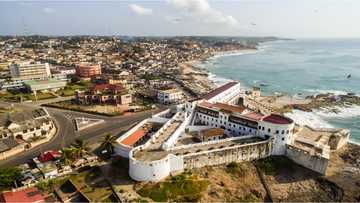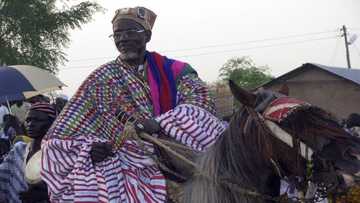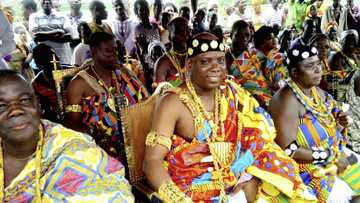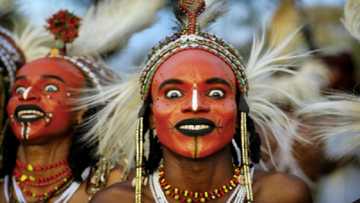Frafra: basic phrases and interesting facts
The Frafra people are located in the Northern parts of Ghana. They are mainly found in the upper east area. They are also located in the Southern part of Burkinafaso. Also referred to as Gurenɛ, Frafra has a striking resemblance to other dialects found in the Nothern part of Ghana, with Dagbani and Mossi being top on the list of the closely related languages. Frafra has 3 main dialects; these are Booni, Nankani, and Gurenɛ. In some publications, Talni and Nabit languages were mistakenly recorded to be dialects of Frafra.
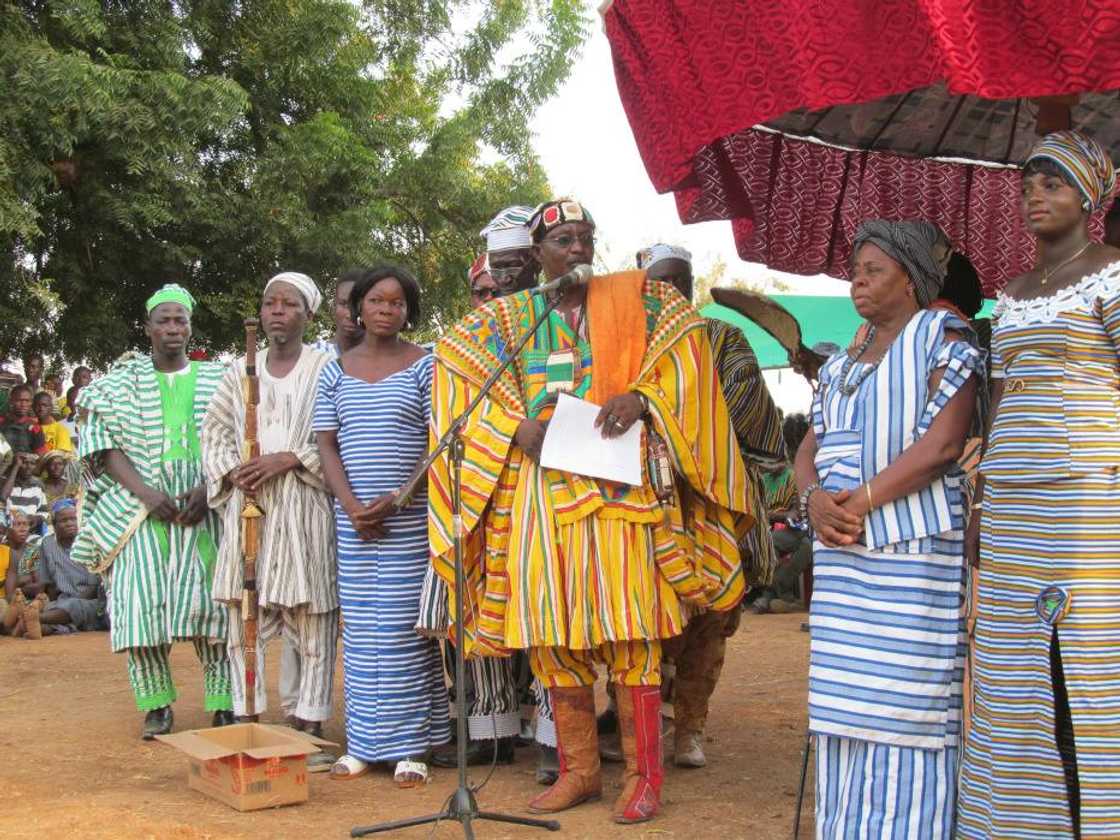
Source: UGC
There is a profound connection between the name Frafra and the colonialists. A section of the Gurunsi located in the Northern parts of Ghana was given the name Frafra, which today most people prefer to call it Fare-Fare. The Gurunsi people use it as Fara-Fara to mean, excellent job done - a form of gratitude. They also include the same word, Fara-Fara while greeting each other. The frequency with which this term was being used by this sub-tribe, made it easy for the colonialists to grasp it and later the term was used as the name of the people. Since then, the name Frafra has stuck as the main name of this group of people.
READ ALSO: Ewe: basic phrases and interesting facts
The name Frafra is a representation of more than one tribal group with a common cultural heritage but with little differences in their rituals and language. However, the things they share both in the way of life, rituals, and language far outweigh their differences.
The language spoken by the Frafra people is, Frafra, Gurenɛ, or FareFare. This language falls under the Gurma Oti-Volta cluster of the greater Niger-Congo language family. More than six hundred thousand people speak this language in the Northern part of Ghana.
The Frafra people were despised by their neighbours from the north and those in the south because of their little numbers of literate people, their readiness to work on any menial job available, and their dog eating habits. This has, however, changed in the recent past as the community boasts of a huge number of literates, and have gone ahead to form a strong association of the Frafra dubbed the BONABOTO. This association pushes the political and socio-economic agenda of the Frafra.
Interesting facts
- The commercial area of the Frafra is called Bolgatanga. They also have significant villages such as Bongo, Zuarungu, Tongo, Pwalugu, Zoko, Somburungu, and Zuarengu. However, it is important for you to understand that Tongo is the main town of the Talensi, is distinctively different from the Frafra. In current Ghana, the Frafra can be spotted in all major towns across the country from Tamale, Cape Coast, Accra, Sunyani, and Kumasi.
- BolgaTanga, a name that was arrived at by joining two words, that is Bolga and Tanga, is known as the handicrafts centre of Ghana. The centre is famed for its well designed Tehei or basket, smocks, and hats.
- The Frafra speakers live in Bongo, Tellensi-Nabdan, and Bolgatanga districts, located in the Upper East area of Ghana.
- People who speak Frafra are mainly farmers who practice subsistence farming. They also keep domestic animals on their farms. These animals include goat, sheep, and cattle. The animals are kept for domestic and commercial purposes. In other Frafra sub-tribes, the cattle is exchanged as dowry.
- Frafra follows a patrilineal system of family. They are organized in clans, Yizuo, which to them is family. Yizuo is used to mean the head of the house. People with a common ancestor form the Yizuo. The Yizuo is bound together by their specific totemic ancestors and taboos. This quality helps them to remain together in spite of distance and other factors that might separate them.
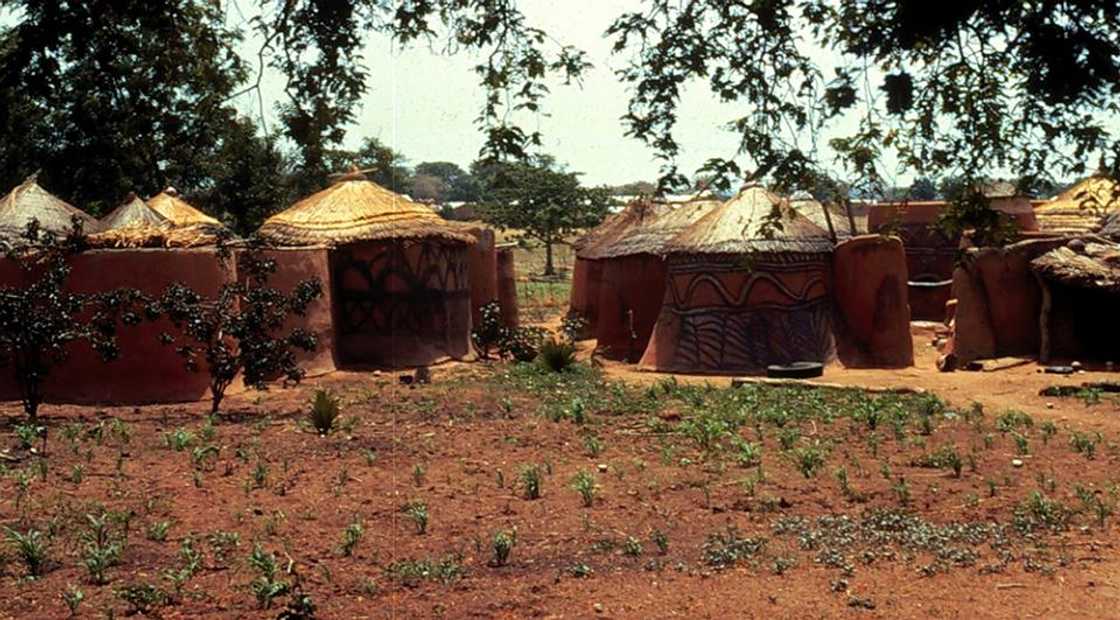
Source: UGC
- Marrying a person with the same totemic ancestor is not allowed, while the oldest living son of the clan is the automatic leader and is responsible for guiding the clan.
- The Frafra have strong familial ties in their clans, where every member is obligated to help each other in areas such as funerals, marriages, offering sacrifices to their ancestors, and overall well-being of a person and the clan in its entirety.
- The Frafra never had chiefs. Instead, they had clan heads as their leaders. However, the Mamprusi invaded and forced chiefs on them. They later fought and installed their own chiefs known today as Bongo Na, and Bolga Naba. It is the chief's duty, together with the elders, to ensure that there is peace and calm in society.
- Frafra speakers have a strong religious belief in the supreme being. And, therefore, they call their God, Yinε.
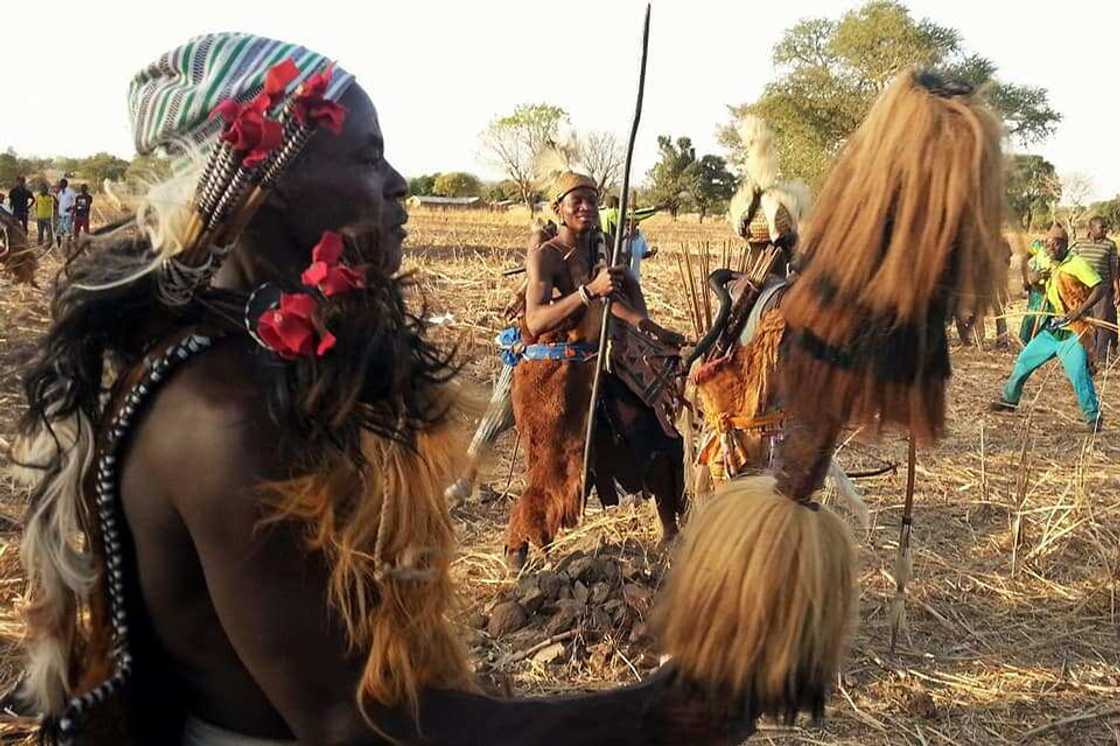
Source: UGC
READ ALSO: Bono: basic phrases and interesting facts
Basic phrases
Here are some of the basic Frafra words that you can learn and use in your conversations. You can also learn more about Frafra from ethnologue.
- Bolga - clay
- Yinε - God
- Keema - older
- Tanga - rock
- Ya - houses
- Gaarɛ - a type of bean cake
- Ekɛ - to fly
- Zoore - mountain/hill
- Tẽŋa - city
- Taablɩ - table (French borrowing)
- Piika - little
- ɔɔrɔ - cold
- Toma toma - a greeting similar to "hi"
- Teebʋl - table (English borrowing)
- Buulika - morning
- Afrika - Africa
- Amerika - America
- Antarktika - Antarctica
- Asia - Asia
- Australia - Australia
- Europa - Europe
- Okeania - Oceania
- Fare-Fare - how are you
There is Frafra language translator which lets you know a specific Frafra word in English. You can also get the Frafra dictionary pdf where you will find all the words and their translations. You will neither have to wonder how to say, how are you in Frafra, nor will you struggle to understand Frafra proverbs when you have this dictionary.
Frafra is an interesting language. As people, they are also interesting. Their history is rich and their culture is diverse. Anyone would want to learn this language. This article has just gotten you started.
READ ALSO:
- Dangme: basic phrases and interesting facts
- Dagbani: basic phrases and interesting facts
Source: YEN.com.gh

